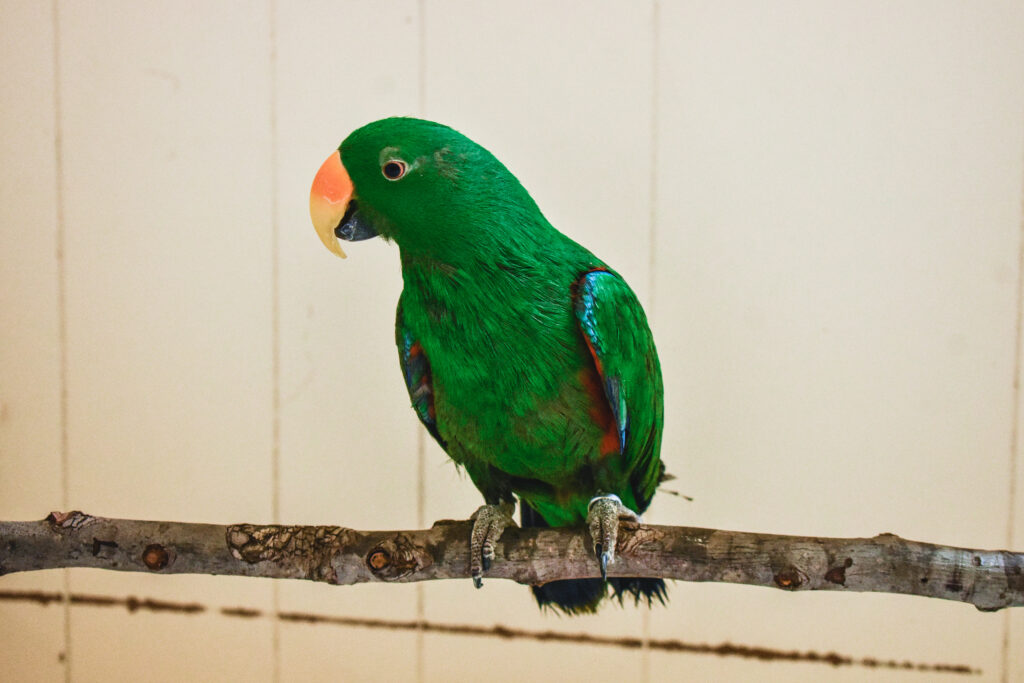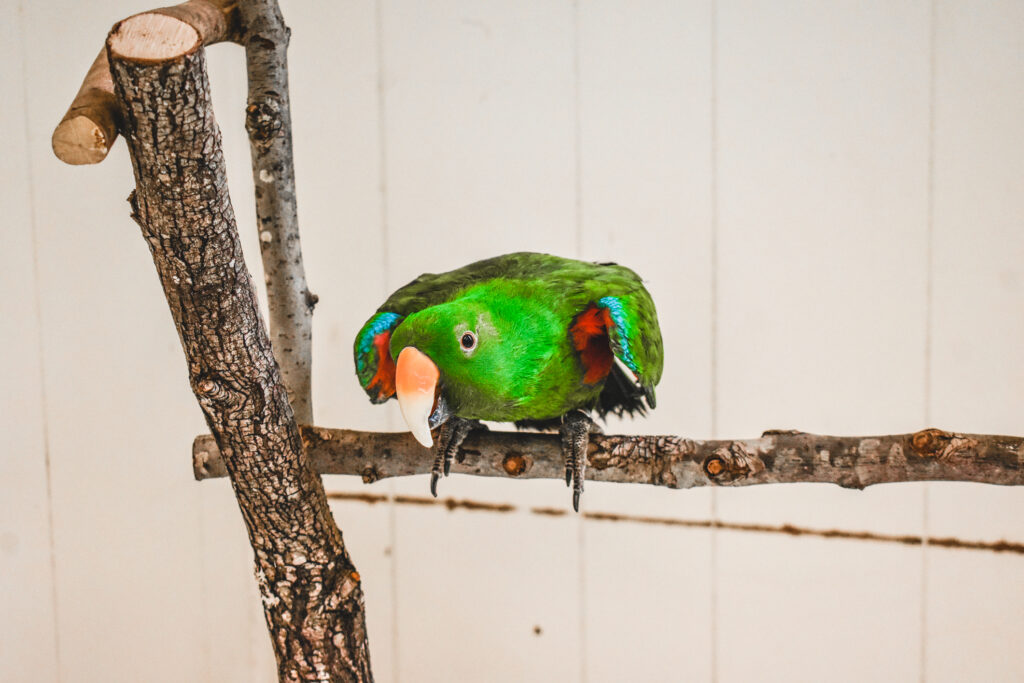A Zeke Peek at our Newest Ambassador
New at the Zoo is Zeke, the eclectus parrot! This fifteen-year-old avian was recently acquired by the Zoo in early January and will soon become an animal ambassador.
Eclectus parrots are originally native to the Solomon Islands, Papua New Guinea and parts of Indonesia and Australia. Their diet consists of fruit, tree buds, nuts and seeds. This species is vital to their native ecosystems, as they can help disperse seeds to aid in replenishing forests.

These parrots are the most most sexually dimorphic of any parrot species, meaning their appearances differ based on sex. Zeke is mostly green in color with flashes of yellow, red and blue on different parts of his body, just like all male parrots of this species, while the females are mostly dark red in color with flashes of blue and purple feathers. The males and females also have different colored beaks. The males and females were actually once considered to be two separate species due to their different appearances.
These parrots can live to be 40 years old, so Zeke is considered to be a younger parrot. His species is not currently listed as endangered or threatened but their population numbers are not fully known. Eclectus parrots have been hunted for their colorful feathers and current challenges potentially include increasing loss of habitat. They can also face challenges when collected illegally for the pet trade, where they are highly popular. The parrots require specialized care, so it is recommended that anyone considering them as a potential pet should already have direct experience with these birds and the ability to commit to a lifetime of care.
Zeke is much smaller in size than the Zoo’s two other parrots – a Green-winged macaw named Big Red and a blue and gold macaw named Bille Jean, who are both 2.73 and 2.17 pounds, respectively. Zeke measures 14 inches in length from head to tail and last weighed in at 376 grams, which isn’t even one pound!
Since his arrival, he has already started bonding with Keepers and participating in training sessions. Training sessions are always voluntary for the animals – meaning they can choose whether they want to participate or not. It is up to the Keepers training the behavior to make training sessions fun and positive for the animals! Keepers also figure out the best training rewards for each individual animal, which can be whatever the animal finds reinforcing, from food to back scratches, or even a favorite toy or a refreshing shower from a water hose.

Keepers are still working with Zeke to discover which enrichment items he likes best and have found that he likes to forage, climb branches, explore and investigate his exhibit, but they have also noticed he enjoys being the center of attention and interacting with people.
Currently, Zeke is trained for nail trimmings, but Keepers are also working with him on other behaviors. Keepers would like for Zeke to eventually allow other voluntary medical care such as blood draws or injections that would further help staff to provide the best possible care, display typical eclectus parrot on cue behaviors so they can share with guests more about his species’ natural history (such as his loud vocalizations), and for Zeke to acclimate to different scenarios and stimuli so that he is comfortable in different situations around Zoo guests.
Zeke lives with the other animal ambassadors behind-the-scenes in the Program Animal Building. Keepers don’t yet have a date for Zeke’s public debut, but are hopeful for him to begin greeting guests soon, once the weather is warm enough for him to be out and about on Zoo grounds.